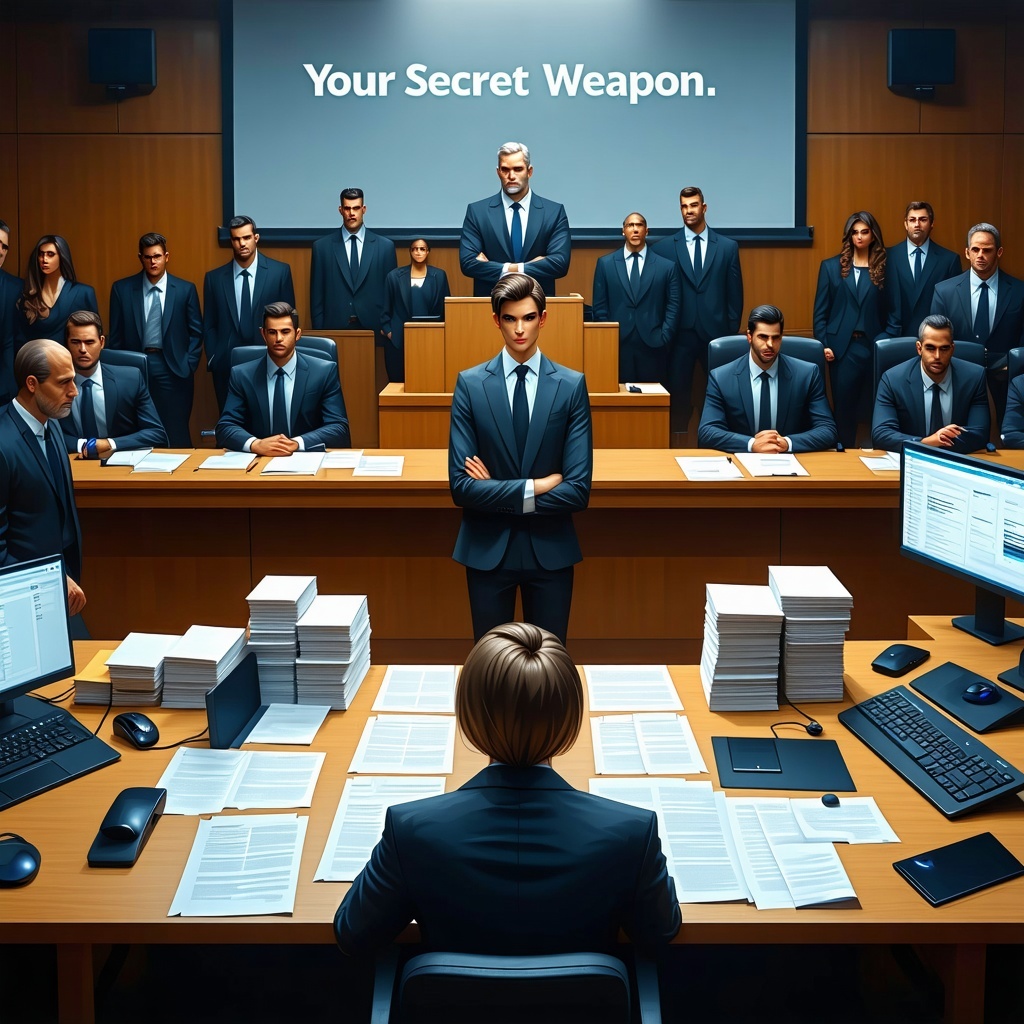A couple of decades ago, I was consulting on a multi-week federal trial—big case, tight courtroom, full of moving parts. The lead litigator had rehearsed every line of the opening, the graphics were locked, and the witnesses were prepped. But then, two minutes before opening statements, a projector bulb blew.
No panic. No scrambling.
The trial technician—who had quietly loaded, tested, and redundantly backed up everything the night before—walked calmly to the cart, replaced the bulb, and got the system online again before court was gaveled in.
No one noticed. Except the team. And me.
And that’s when I was reminded again: trial technicians aren’t background players. They’re the secret weapon.
What Is a Trial Technician, Really?
If you’re reading this blog, chances are you’ve worked with one before. But if you’re only sort of aware of what your tech does—especially if you’ve ever referred them to “the AV person”—you’re missing the point.
A trial technician (or hot-seat operator) is the person who:
-
Queues up demonstratives live, in sync with your delivery,
-
Calls up deposition video clips during cross like a conductor hitting cues,
-
Switches seamlessly between callouts, highlights, and blowups,
-
Troubleshoots courtroom tech without drama, and
-
Keeps your presentation moving forward even when the unexpected happens.
They’re part tech expert, part stage manager, part insurance policy. And when they’re good, you don’t even notice them.
What Makes a Trial Technician Great?
There’s a big difference between a technician who “knows the software” and one who’s truly prepared to work in high-stakes trial environments. Here’s what separates the great ones:
1. Anticipation, Not Just Reaction
The best trial techs don’t wait for something to go wrong—they expect it might and are ready with a workaround before you’ve even finished saying, “Can we…?”
2. Command of the Case
They know the exhibit numbers. They understand the narrative arc. They’ve reviewed the cross binder. They’re not just running a machine—they’re supporting persuasion.
3. Calm Under Pressure
Courtrooms are inherently stressful. But your tech shouldn’t add to that. A great trial technician lowers the collective blood pressure by being composed, methodical, and solution-oriented.
4. Clean Visual Timing
When the right graphic pops up at the exact moment you reference it—highlighted, called out, and centered—that’s not magic. It’s muscle memory. The best techs don’t just follow—they lead from behind.
Why You Can’t Afford to Wing It
We’ve seen it happen: A case team skips hiring a dedicated trial tech and leaves presentation duties to a junior associate or paralegal. It’s cheaper… until a video won’t play, or a callout is misaligned, or a blow-up takes 20 seconds too long to load.
In front of a jury, those seconds cost credibility.
In front of a judge, they waste goodwill.
And in a courtroom running on momentum, they break rhythm.
Hiring a seasoned trial technician is not just about avoiding disaster—it’s about elevating your entire presentation.
When the Graphics Matter, the Technician Does Too
At Persuadius, we’ve supported hundreds of trials with litigation graphics. But we’ve also learned over time that even the best graphics can fall flat without a skilled operator behind the scenes.
It’s like giving a Stradivarius to someone who’s never played violin.
That’s why we often recommend pairing our trial graphics with experienced trial tech support. We don’t just hand off files. We help you make the strongest impression possible—live, in the room, when it matters most.
Ready for Trial?
If you’ve got an upcoming trial and want to talk through how to elevate your presentation—from visuals to timing to seamless execution—book a short call. We’ll help you plan for the expected… and the unexpected.
Because when the pressure’s on, the last thing you want is a tech scramble.
What you want is calm competence—and a secret weapon in the hot seat.
Related reading from the Litigation Consulting Report, a Persuadius blog:
-
What to Look for in a Trial Tech
-
10 Criteria to Select the Right Trial Presentation Consultant
-
6 Things Every Litigation Team Should Do Before Trial
-
12 Ways to Make a Trial Timeline More Persuasive






Leave a Comment